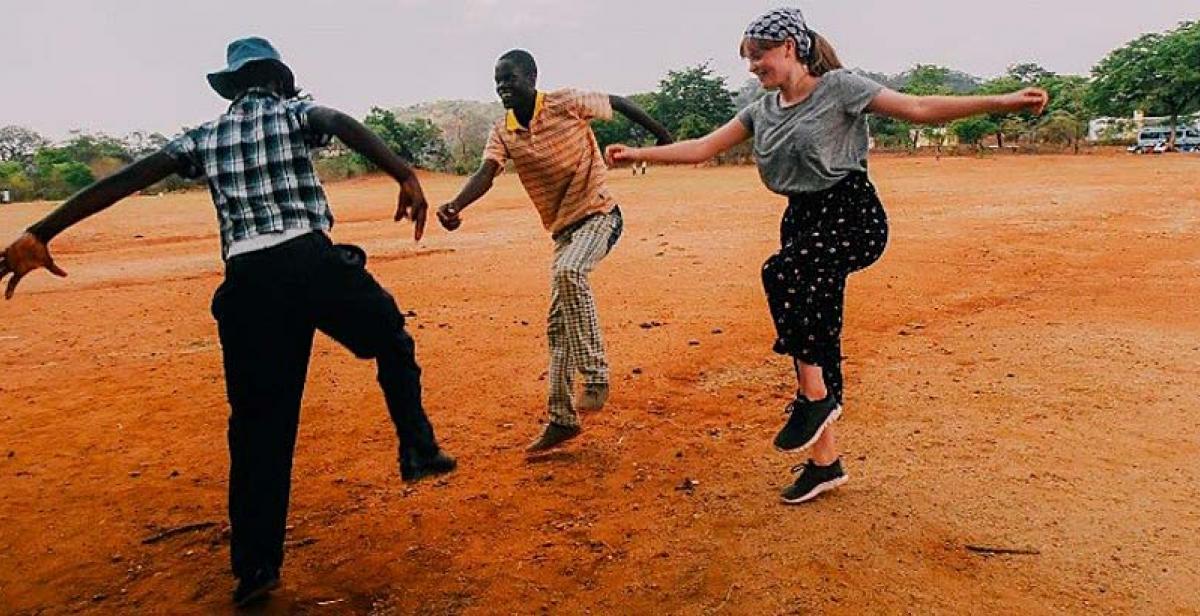How do you engage four hundred people of all ages, with very limited English, in one large field on a scorching hot day? With temperatures in the high 30s, unrelenting sunshine, and limited resources beyond a crate of bananas and some bad dance moves, Team Rowa began our first weekend workshop.
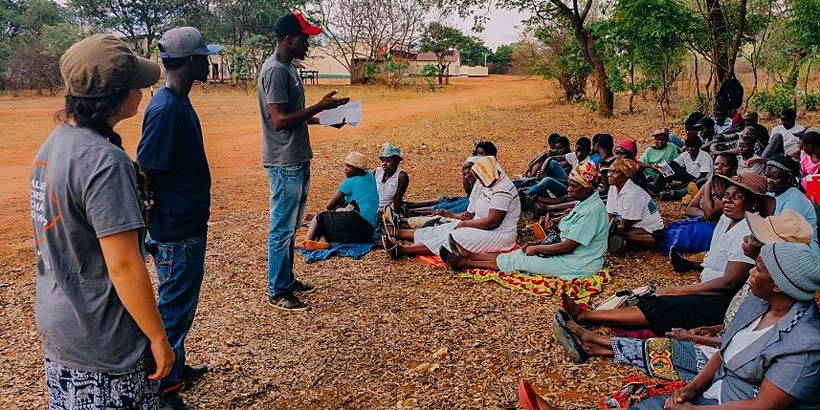
Our goal? To help local organisation ZOE’s (Zimbabwe Orphan Empowerment) beneficiaries (vulnerable children and orphans) in their income-generating activities (IGAs). Group IGAs bring together forty or so beneficiaries on projects such as setting up tuck shops, selling cutlery in their community, or rearing poultry. At their best, IGAs can dramatically improve lives. The profits from IGAs can pay for siblings to go to school, contribute to precarious household finances or be re-invested into future revenue streams. But being in a group IGA is no guarantee of success. If beneficiaries fail to communicate with, listen to and respect one another, the IGA can fall completely flat. We had reports that group IGAs were stalling, with members failing to get along with - or even show up - for their meetings together.
Can you turn a fragmented group of people into a team in three hours? We designed a programme of icebreakers to get our attendees dancing, singing, moving and working together as teams. Ice breakers are named after the ships which were sent ahead during northerly journeys to break apart the ice and allow other boats to pass through. If the metaphor was going to serve us, we needed to clear some space for Rowa young people - varying in ages from eleven to twenty-two - to relate to each other as friends.
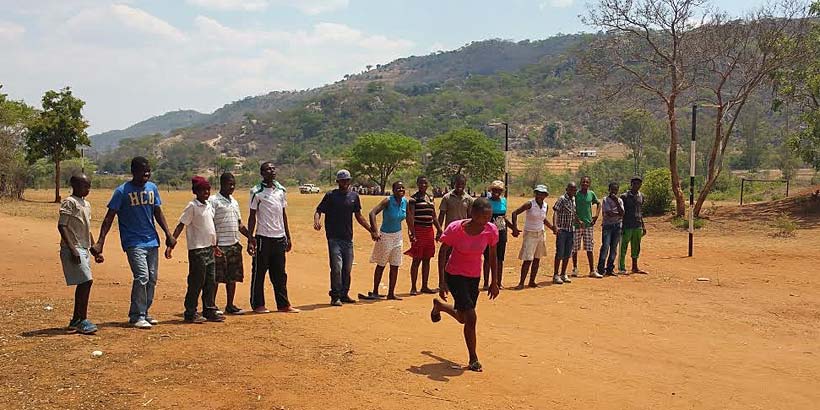
Games like the ‘human knot’ (in which groups cross their arms together, form into a knot and then untangle themselves) quickly had them working together as teams. To all appearances, the group was building friendships and breaking down barriers. Yet with twice as many attendees as we had planned for, and the hot sun beating down on us, it was hard to maintain energy levels.
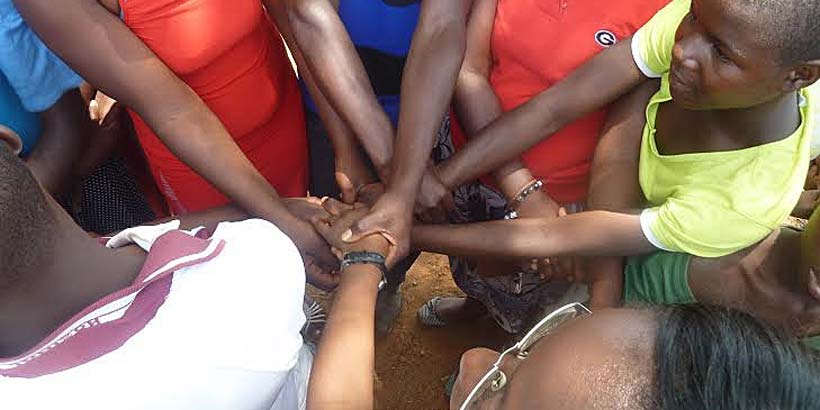
Shona singing came to the rescue. Some of the more ancient members of our groups were happy to lead the way, clapping and dancing with considerably more enthusiasm than those of us in our twenties. With the help of some grandmothers and grandfathers, we managed to keep energy levels up for long enough to discuss child rights and responsibilities.
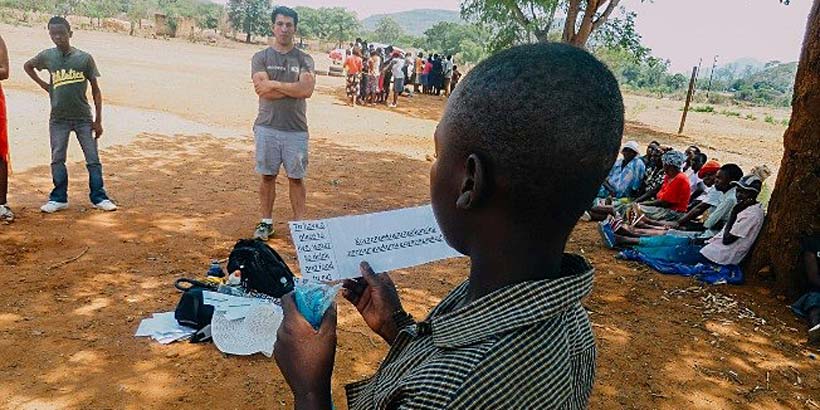
For some UK volunteers, the concept of child responsibilities can seem unusual. UK education tends to think about child rights as a one-way flow from guardians to young people. Our Rowa beneficiaries helped us think about rights and responsibilities as two halves of a whole. Parents and children worked as one group to match up rights (‘to shelter’ or ‘to parental care’) with responsibilities (‘to perform household chores’ or ‘to respect and obey guardians’), and opened up room for different ways of thinking about children’s roles in the community.
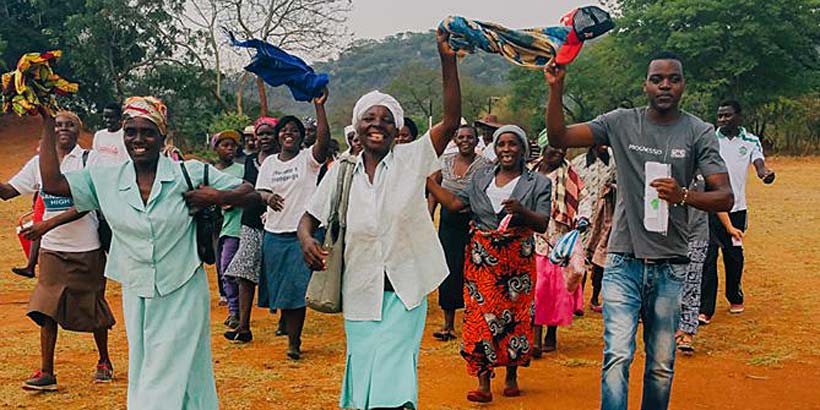
As we were beginning to turn sun-dried, the small groups led back into one. Then, sitting in puddles of shade beneath a couple of trees, our attendees ate food provided by ZOE and the volunteers collapsed on our water supplies. Although language barriers and cultural difference often separate us, our first Rowa workshop confirmed that, more often than not, we can sing the same tune.
Written by ICS volunteer Ettie Bailey-King


